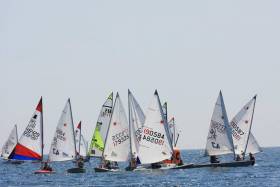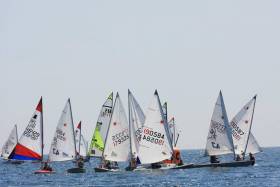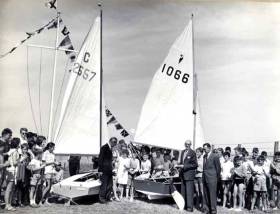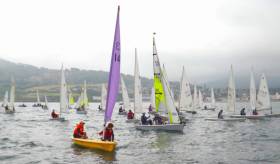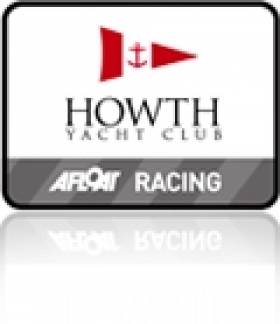Displaying items by tag: Junior Sailing
The National Yacht Club is currently seeking to recruit a team of committed and enthusiastic assistant instructors for its 2019 summer courses for junior sailors.
Prospective candidates must apply before next Monday 22 April.
This is a great opportunity to learn from the NYC’s qualified coaches and instructors how to lead and deliver sessions on training courses.
For more details visit the dedicated Facebook page.
Junior summer courses begin with the first two-week session from Tuesday 4 to Friday 14 June.
Four more courses will fun over the summer, from 17 June, 1 July (one week due to the Volvo Dun Laoghaire Regatta), 15 July and 29 July.
It is planned to cary on extra levels this year, such as junior adventure and advanced boat handling for kites and wires.
And this summer will continue the successful teenage sailing courses, along with the mew ‘Teen Team’ course. For details on all courses see the NYC website HERE.
The NYC also recently announced dates for its Friday night junior sailing series starting on 3 May.
National Yacht Club Calling All Junior Sailors For Friday Night Racing From This May
The National Yacht Club us putting out a call for its Friday night junior sailing series which this year runs for eight weeks from Friday 3 May.
There will be two races each Friday inside Dun Laoghaire Harbour, with first gun at 6pm.
Entry is open to all NYC Junior sailors under 19 years of age on 1 January 2019 and who have passed ISA Improving Skills.
The purpose of Friday night junior racing is to encourage young sailors to improve their race sailing skills — and the club says the event is dependent on all parents volunteering to help out on at least one evening.
“Volunteering is a great way to meet up with old friends, make new ones and learn new skills,” says the NYC’s Sarah Gorman.
“Don’t be put off and think you cant help. We cannot run this event without your help and it is expected that you volunteer if you have a sailor entered into the event.”
Online entry will open soon — see NYC.ie for more details.
Call for Dun Laoghaire West Pier Junior Section 60 Year Anniversary Reunion
Remember all those happy summer days and friendships made at the DBSC Junior Section at the West Pier in Dun Laoghaire? Seeing that it is 60 years ago when it all started in that summer of 1959, a group of Dublin Bay sailors have decided that is time for a class reunion!
The reunion will be held on Friday 12th April 2019 at the Royal St George Yacht Club in Dun Laoghaire.
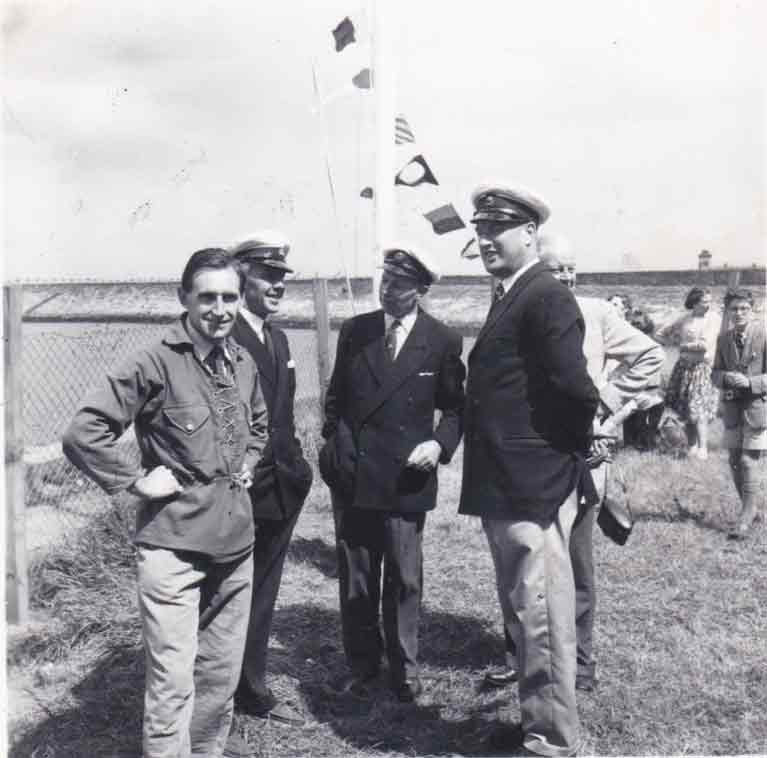 Jimmy Mooney, George Craig, H Thompson, Sean Hooper and Terry Roche
Jimmy Mooney, George Craig, H Thompson, Sean Hooper and Terry Roche
The class of 1959 was the real start of junior sailing in Dun Laoghaire - before juniors or junior sections were part of the waterfront yacht club scene. It started circa 1959 based at the West Pier.
"The class of 1959 was the real start of junior sailing in Dun Laoghaire"
Now, sixty years later, much like the Fireball class reunion held in 2016 the West Pier Reunion group are trying to get the database of people together and while they have a good list already (some 250 names, download below), organiser Ciara Dowling is seeking assistance in tracing some of the original juniors. 'We are still missing people and a lot of contacts it would be great if Afloat readers could go through the attached list and send details to Ciara at [email protected] before 4th March 2019.
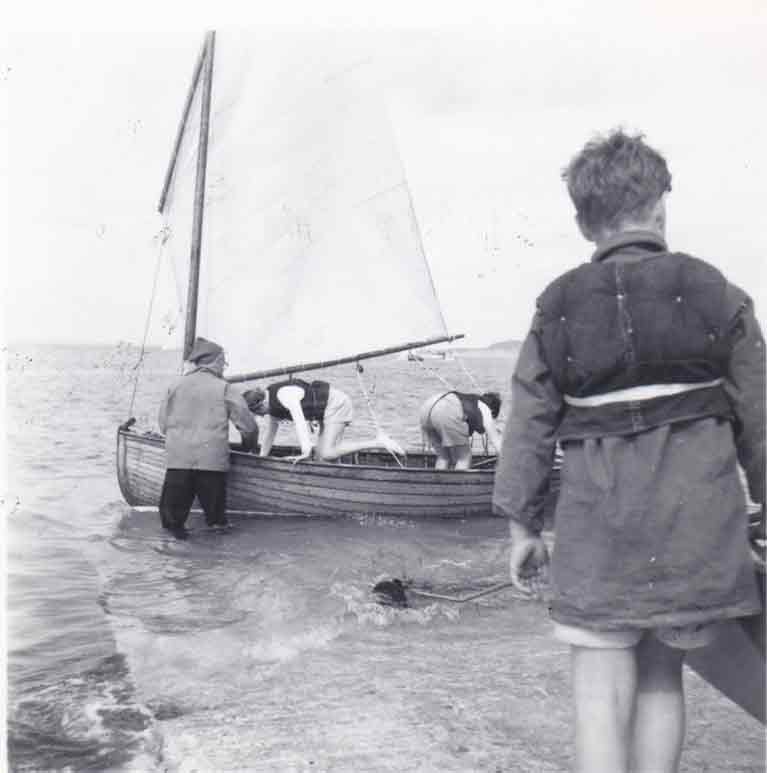 Peter Dobbs holding 12 footer Cora with Vincent Delany on the slipway
Peter Dobbs holding 12 footer Cora with Vincent Delany on the slipway
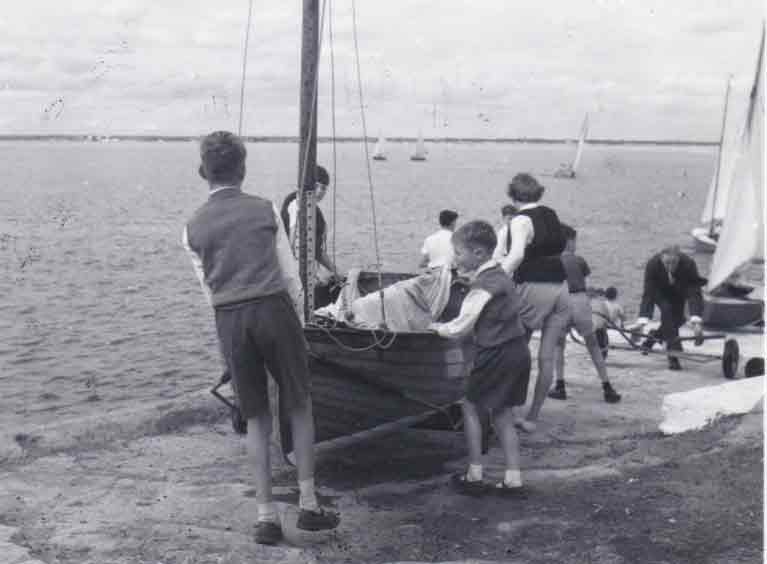 Owen Delany, Paddy Breen and Noelle Breen launch 12 footer Cora
Owen Delany, Paddy Breen and Noelle Breen launch 12 footer Cora
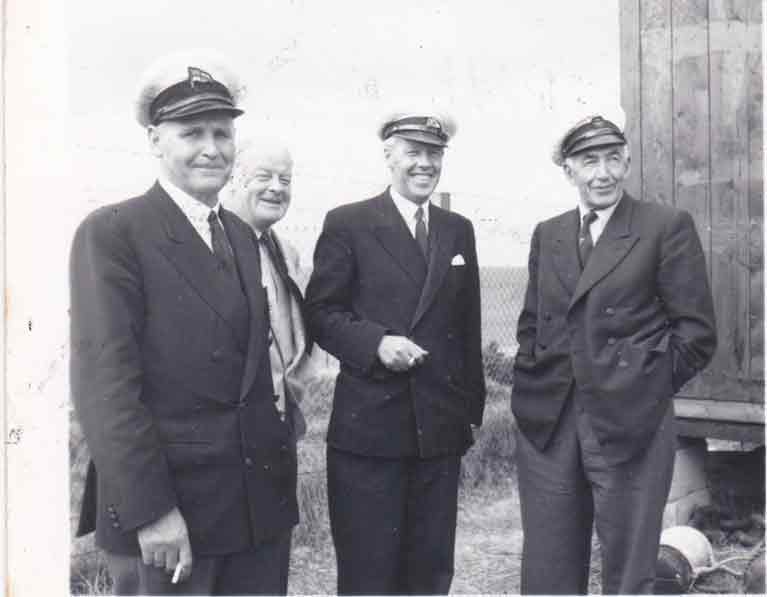 Mr Smalldridge, Sean Hooper, George Craig and Billy Mooney
Mr Smalldridge, Sean Hooper, George Craig and Billy Mooney
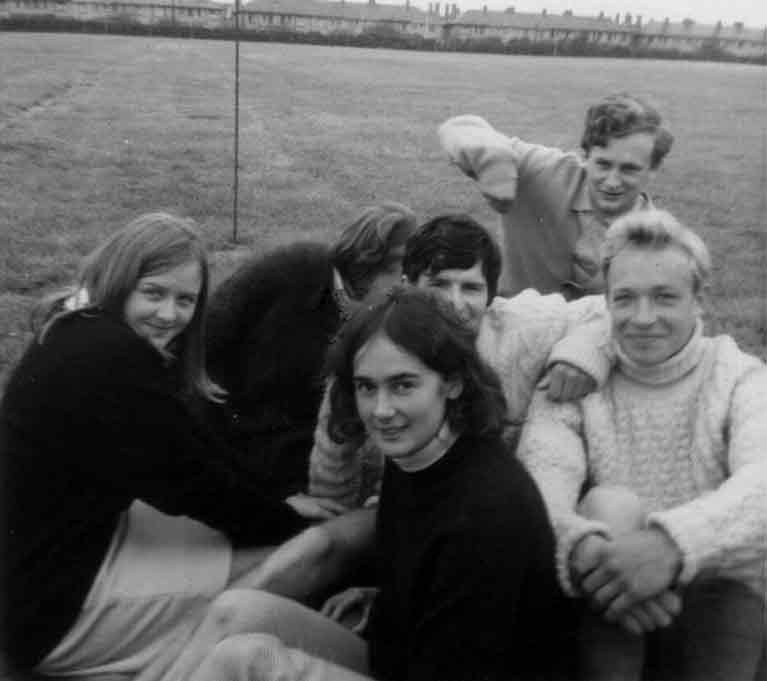 Lynda MacFarlane, Heather Rogerson, Brian MacManus, Des Thorpe and Colin McMullen
Lynda MacFarlane, Heather Rogerson, Brian MacManus, Des Thorpe and Colin McMullen
Bray Sailing Club Junior Regatta Gets a Big Turnout
Bray Sailing Club took another big step forward this week in their efforts to regenerate junior dinghy sailing in the North Wicklow club with their largest Junior Regatta fleet in many years. Strongly supported by their neighbours in Greystones SC, who sailed north with a fleet of 13 boats, the 43 boats and over 70 junior sailors enjoyed four races over approximately four hours of racing in a steady force 3 south-easterly breeze.
As with most junior regattas, the three fleets encompassed a wide range of abilities, ranging from complete newcomers to sailing to the old hands trying to bag one last victory in their final Junior event. However, what was not in short supply was enthusiasm and competiveness, as evidenced by two general recalls, and a number of individual recalls.
The courses comprised a mixture of windward-leeward and triangles, with different configurations for each race to keep the youngsters on their toes. Results are available to here.
Bray Sailing Club is running a nine week junior training programme this year and has a number of exciting initiatives in the pipeline to make sailing more accessible to members of their local community, including plans for an Irish language sailing course in early 2018. Despite the difficulties caused by the recent silting in Bray Harbour, the club has experienced a significant increase in adult membership in the last few years, many of whom are parents following their children into sailing.
New Boat Donated to Howth Juniors
Euro Car Parks today presented Howth Yacht Club with a brand new Laser Pico to be used for junior sailing.
At the handover, Dave Cullen commented ...
"We are delighted to support junior sailing in Howth Yacht Club and are ever keen to promote and encourage new children into the sport. This Pico will enable parents to try their kids out in sailing without having to purchase a boat and it will be available to rent at a nominal charge for the summer courses.
It is essential that the life blood of our Club, sailing, continues to grow and we as a Company are proud to support the growing activity in this vital area".
Euro Car Parks were earlier this year honoured as Irish Independent Best Workplace in Ireland 2010 and have recently opened their latest 900 space car park at The O2 in Dublin.


























